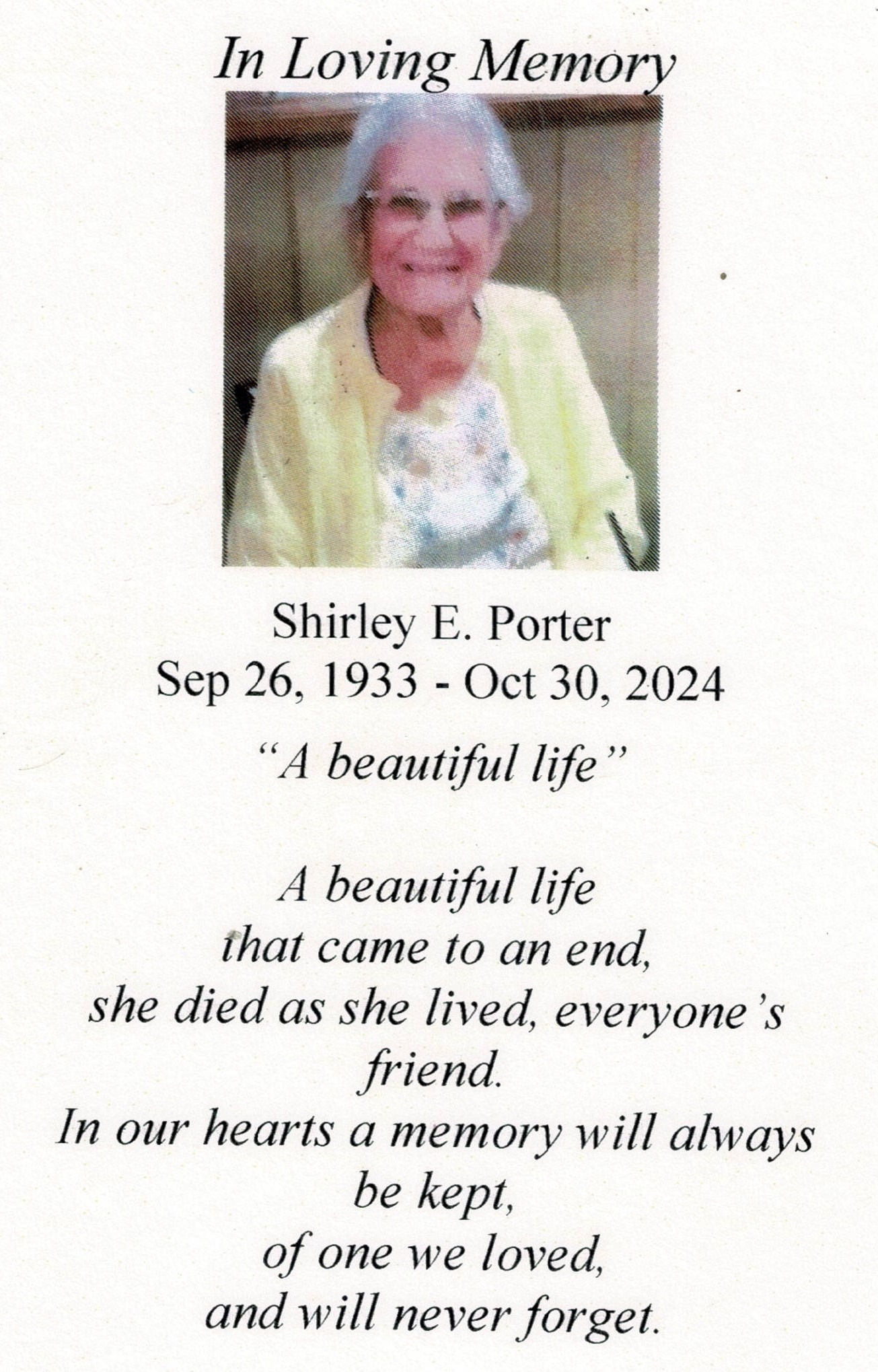The Passing of Shirley Porter: Mourning, Gratitude, and the Complexity of Loss
Mixed emotions, and the reality of life.
I don’t know exactly where to start. My grandmother, Shirley Porter, passed away recently, and I find myself grappling with a mix of emotions that I can’t quite untangle. I feel sadness, of course—I’ve lost a family member, and that’s never easy. But I also feel a strange sense of relief, knowing that her suffering has ended. And beneath all of that, there’s a deep sense of regret. Regret not only for the time lost between us but also for the relationship we could have had if circumstances had been different.
The truth is, Shirley and I didn’t have a close relationship for most of my life. She was my father’s mother, and while she played a significant role in his life, mine was always somewhat separate from hers. In my childhood, I don’t remember her being a big presence. I don’t recall her visiting often, and when she did, it was always distant—polite but emotionally distant. We never really clicked, and I think that’s true for a lot of families. Sometimes, family members just don’t connect the way you expect them to, and for whatever reason, Shirley and I never built that closeness.
But things began to shift as my father’s health began to decline. As many of you know, watching a loved one slowly deteriorate is one of the hardest things you can experience. In those final years, I found myself spending more time with my father, helping him with whatever he needed, even as the toll of his illness weighed heavily on our family. Shirley, too, was deeply affected by her son’s illness. She had always been there for him, but his decline forced her to confront her own feelings of helplessness and fear. During this time, I saw a different side of her—one I hadn’t been privy to before.
I can’t say there was a sudden moment of transformation, but over time, Shirley became a different person to me. We began to connect in a way we never had before. I began to see the layers of her personality that had been hidden from me as a child—the warmth, the vulnerability, the weariness. In some ways, it felt like we were both grieving together, my father’s impending loss and the slow realization that our family was not going to stay the same. There was a tenderness that grew between us, even though our time together was limited. We spoke more openly, shared memories, and reflected on our lives. It wasn’t perfect, and we still had our differences, but we found a rhythm in our relationship that allowed us to truly see one another for the first time.
After my father passed away, my relationship with Shirley continued to evolve. Losing my father was an indescribable blow, and in the midst of my grief, it felt as though Shirley and I were walking through it side by side. She understood in a way that no one else could, and I began to understand her in a way I never had before. I think she softened, too, as she came to terms with her own loss—not just of a son, but of the passage of time. She, too, was getting older. The future for both of us was now marked by the absence of someone who had always been at the center of our family. And in a way, that loss brought us closer.
But even as we shared those moments, I couldn’t help but mourn what might have been. I wish we had more time to truly deepen our connection, to understand one another better. There’s so much I wish I could have learned from her, so much I wish I could have shared with her. There’s regret in that, a deep sadness that we never quite reached that place of full understanding. She had changed—become a better person in my life—and I had, in turn, grown closer to her. But I always felt there was still so much left to explore.
Now that she’s gone, I’m left with this complicated mixture of emotions. I mourn the fact that we won’t get to have those late-night conversations about life, or share memories in the way that families do when they’re finally able to see one another clearly. There’s a sorrow in knowing that this relationship, which had just begun to grow into something more meaningful, has been cut short.
At the same time, though, there’s a profound sense of relief that Shirley’s suffering has ended. She had been through a lot in her life—illness, pain, loss—and in the last years of her life, the toll it took on her became even more apparent. There were moments when I could see the strain in her eyes, the fatigue of living, the sadness of watching the people she loved slip away. I know she’s at peace now, and I take comfort in that. The years of hardship have ended for her, and though I would never wish for anyone to suffer, I can’t help but be thankful that she no longer has to carry that burden.
So, what do I do with all of this? How do I reconcile the sadness, the relief, and the regret? I suppose the answer lies in accepting the complexity of the situation. Life is rarely simple. Relationships are never as neat and tidy as we’d like them to be. But in the end, I’m grateful for the time I did get with her. Even though it was brief, it was meaningful. And I’ll carry that with me.
Shirley Porter may not have been the grandmother I expected, but she was the one I had in the end. And for that, I’m thankful. Rest in peace, Grandma. You’ll always have a place in my heart.


